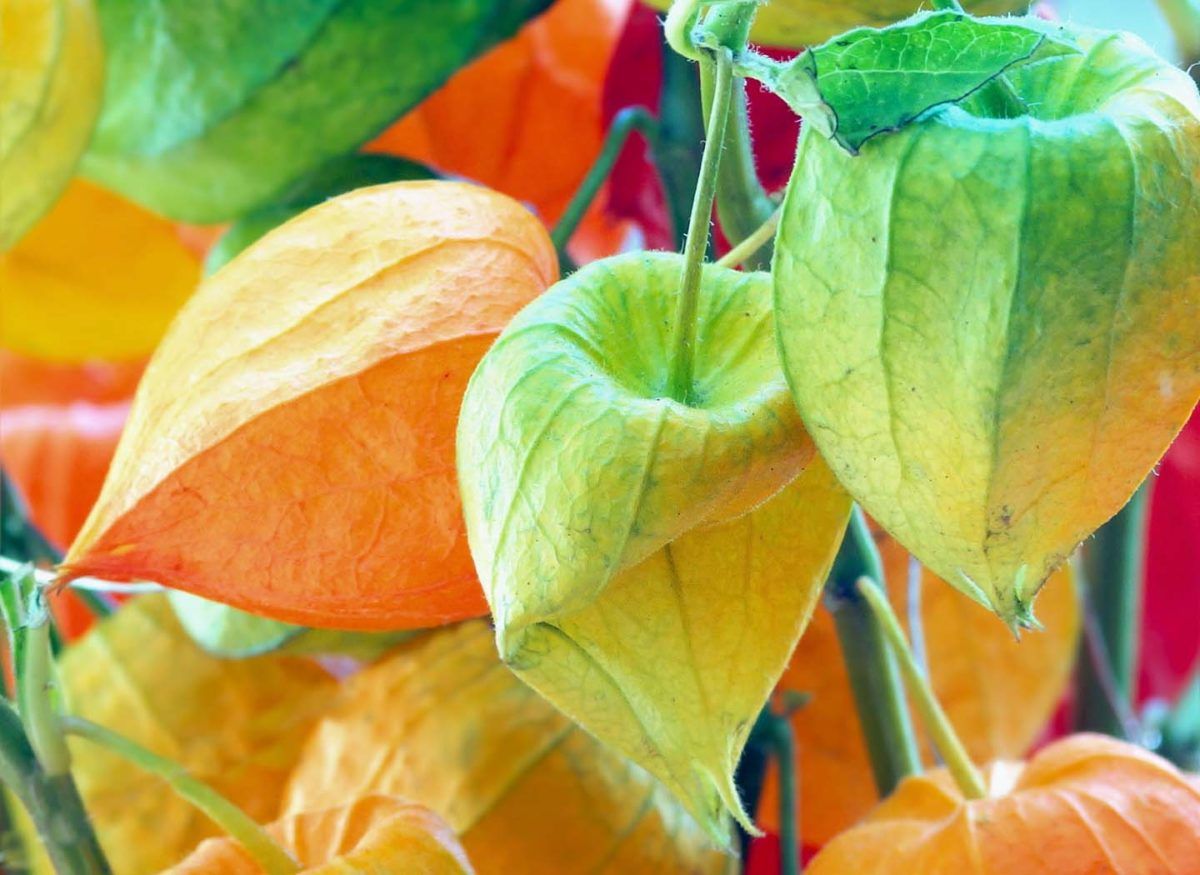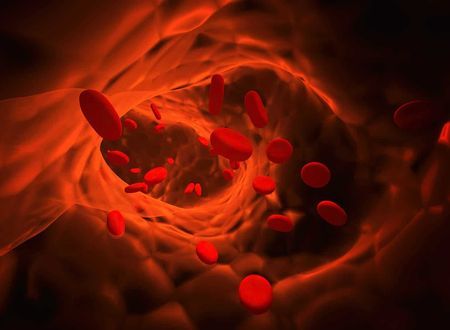A few years ago, before I renounced, there was a cold wave in North India. Several incidents of homeless people dying from the cold were reported in the news. My father asked and inspired me to do my two cents worth. I felt grateful and inspired to do something.
Consequently, a senior manager in my company, who was also a close friend of mine, and I decided to distribute blankets to the needy. However, we did not want to just give them away to some organization. We wanted to ensure that they were put directly into the hands of those who were in genuine need. We bought about fifteen dozen blankets, and we had an SUV that could stock more than seventy at a time. My friend, his sister, our driver, and I got in the vehicle at midnight. We started driving around the high streets of a major city, an industrial town.
The outside temperature, as indicated in the car, was three degrees centigrade. The street lights had a halo of fog around them as it was foggy, not dense, though. Even the stray dogs and the cows were hiding. It was all painfully quiet and cold. As we drove around, we saw heart-wrenching scenes. Homeless people were lying on the footpaths in various places.
Some had wrapped themselves in jute bags, some in flattened cardboard boxes, quite a few were draped in newspapers. The repertoire included the aged, the young, men, women, children, toddlers, and infants. Not even one was sleeping with their legs fully stretched; all were lying curled up to protect their body heat. All four of us in the car had the heating on, but we were feeling guilty and shocked. We had seen things like this before; it was the first time, however, that we paid close attention.
We stepped out of the car and woke some people up to give them new blankets. Some were ecstatic, some cried, some thought we were the police who had come to remove them as they were sleeping in a public place, some thought it was a joke, a few were drunk and could not get up, some wanted more than one blanket. No one asked us for money or other things. They seemed very content to get a blanket.
Their clothes were soiled and tattered, their hair unruly and mostly matted, their bodies dark and smudged in the dirt, years of suffering and sweat had permanently settled on their bodies, but their eyes had an expression of peace and acceptance. Further, they all bore smiles of gratitude and contentment as they got their blankets.
Some immediately unwrapped the blanket and donned it. It was gratifying beyond words to see them do that. Some made it their pillow; they either did not want to use it right away because it was new, or they might even sell it in the gray market the following day. That was beside the point. We were doing our karma, we thought.
There was one particular scene beyond bear. Some people came running towards our car as they saw from a distance that we were giving out blankets. In that group was a girl; she was physically handicapped. She tried to rush like the rest fearing the car might leave, or we might run out of blankets. While she was trying to run, she stumbled and fell. We almost cried, seeing her state.
As she got up and came closer, she seemed to be mentally challenged as well. We could not endure the scene. We did our part and quickly got going. I never went out again to distribute blankets as I did not have the heart to see such suffering. My friend and his sister gave away the remaining on another night.
We came home, and as I lay my head on the pillow, snuggled up in my quilt, I was looking up at the roof. It was a furnished room; it was heated; it had an attached washroom, everything to make it comfortable. It all seemed like a dream. “Wow! I have a roof over my head,” I thought. “What good karma must have I done to deserve this?” Those people kept flashing in front of my eyes.
I could not help but think that not having a roof was one thing, but what about all the other needs? Where must they go to attend nature’s call? They had no place to cook, nowhere to store their utensils or stove, no place to even keep the blankets, in fact, they had no place to wash their clothes. Where would they generally go to get drinking water? Did they brush their teeth? or could they even afford to do that? They had no place called home; there was nowhere they could go after a tiring day. These and a million other questions boggled my mind and tired it out.
I thought of how little one needs to be grateful. That, how gratitude is not dependent on the magnitude of materiality, it is not dependent on all that you must have, but simply a state of mind, an expression of the heart, a commitment to tolerance, a resolution to be happy, a feeling of peace, a sense of contentment, an emotion of fulfillment.
How much do you need to be grateful in life?
If you believe that in order to be grateful, you must have certain things in your life, you will always find it hard to be thankful because no matter how much you may have, there will still be just as much more you will want to have.
Work towards what gives you joy, but be grateful for all that you have.
When you are grateful, an invisible blanket of peace covers you; it makes you glow, makes you happy, makes you strong, makes you warm.
On the path of emotional transformation, the first and foremost emotion is gratitude. To be grateful; like all other habits, this can be learned, practiced, cultivated, nurtured. Read here – to learn the actual practice of gratitude.
Today happens to be Mother’s day as well in certain parts of the world; go on! Tell your mother how grateful you are for all that she has done for you.
Peace.
Swami
Editorial Note
In ordinary life, we hardly realize that we receive a great deal more than we give, and that it is only with gratitude that life becomes rich.
Dietrich Bonhoeffer, German pastor
Be grateful for what you have; gratitude is the cornerstone of a peaceful, content life.
Now, how to be grateful?
Well, one of the easiest ways to experience gratitude is to simply make a list of the good things in your life; in other words, a list of things to be grateful for.
Some examples of gratitude include – a healthy body, hot food on the table every day, a good education, supportive friends, a loving family, a monthly income, etc. Ironically, these are things most of us take for granted when these are, in fact, the things to be grateful for. The following FAQs dive into the emotion of gratitude and how it is extraordinarily transformational.
Be grateful for what you have; you’ll end up having more.
Oprah Winfrey
1. How do you learn to be grateful for what you have?

Gratitude is one of the most profound emotions. If you are grateful you become loving, blissful, peaceful, and calm automatically.
Before we get to the actual practice, let me expand on the two types of gratitude, both are not mutually exclusive and many noble ones practice both.
- Being grateful to God
- Being grateful to others
Now, let’s focus on how to be grateful. How does one practice gratitude?
Let me spell out the practice for you.
You need to make two lists to effectively carry out the practice:
- List 1 – To God: Make a list of things you are grateful for.
- List 2 – To others: List all the people who matter to you, people who have made a difference to you, those who made an impact on your life.
What do you do with these two lists? Find out in the Practice of Gratitude, along with the secret of being grateful for what you have already.
Really, this can’t be stressed enough. Be grateful for what you have.
2. Why is gratitude such a powerful practice?
Whatever be your past, wherever you were, could, or should have been, the truth is you are here, now. This is it. This is life. And really, there are only two choices: start living it or keep complaining.

Of all the things to be grateful for in life, the foremost is life itself.
And if you want to start living your life, all you have to do is start from where you are now bearing in mind that you can only walk the path and be prepared at the most. It might rain when you expect sunshine. I’m not saying it’s a gamble but the outcome is not entirely in our hands.
And when such is the case, gratitude is a most powerful practice.
If you want to see how your life is a blessing, simply take a notepad and write down what’s good in your life. There has to be something you like about your life. Write it down. It’ll evoke positive emotions of gratitude and admiration in you so you may see the brighter side.
There are plenty of things to be grateful for and it starts by being grateful for what you have.
The Four Truths of Life narrates the heart-wrenching story of girls from Mumbai’s red-light district and how they found hope in the darkest of times.
3. How does being grateful help us live life better?
If it is spiritual progress you aspire for, the virtues of compassion and gratitude, of empathy and humility have to be inculcated and practiced. There is no other way.
Many people around us live in extremely difficult, challenging, or abusive environments, often for no fault of theirs. Therefore, in my humble view, our first emotion towards anyone should be compassion, let’s give them the benefit of doubt.
If nature has blessed you with so much that you can afford to read this blog on a phone, tablet, or a computer, etc., somewhere then, it becomes your duty to do your bit to make this world a more beautiful place.
There is no reason for us to forsake our goodness, to not count our blessings, to not help others, to not be gentle. What a blessed life we have, let’s allow others to dip into our joys and resources.
Be grateful for what you have, my friend. Do you know why?
The path of goodness and gratitude is most rewarding for the one who seeks enlightenment. It’s then a blessed life indeed!
4. How does gratitude affect our state of mind?

We have many, many things to be grateful for. Life gives us opportunity after opportunity to feel so.
- About 15 years ago, Vejay Mehta was very upset with his newborn child, blaming him for complications that arose at birth, putting his wife through a great amount of suffering. He wouldn’t even hold his son in his arms. Until one day, when tragedy struck. He had to rush the little one to the emergency ward. He knocked on every door in an unknown neighborhood for help. That day, he fell in love with his child. Parenthood is a reason to be thankful to the almighty, he says.
- “My mother died in January last year”, begins Mohit Aggarwal’s article. So, he learned to cook for his father and himself. He shares a few pictures of the sumptuous food items he has learned to cook since. Grateful to have food and have someone who can cook it for you.
- Lina World meets a delivery boy who can’t hear or talk, a passer-by on a wheelchair who can’t walk, a massage therapist who can’t see, young children in Africa with a cleft lip. They are all smiling, going about creating a more meaningful life. They are competing with a world that is full of people who can walk, talk, see, laugh, and have enough to help.
Read these heart-warming stories on gratitude and more real-life experiences in 10 Reasons to be Grateful. Feeling grateful has never been so life-changing!
5. Is gratitude the secret of happiness?
Unless you are grateful for absolutely everything you have in your life, you can’t start to be happy. And it’s not gratitude for just the good things, but everything.
The video below speaks about how the first principle of happiness is gratitude. Be grateful, be happy.
Is it proving difficult? Make it simple by writing down a list of things to be grateful for. You’ll be surprised at how many you’re able to put down on the list!

Timeline:
- 0:10: Is there a path to happiness?
- 3:01: The first principle of happiness – gratitude
- 4:05: The story of the three rooms in Heaven
- 7:26: Make a list of things to be grateful for
- 10:01: Gratitude is a prayer
A GOOD STORY
There were four members in a household. Everybody, Somebody, Anybody and Nobody. A bill was overdue. Everybody thought Somebody would do it. Anybody could have done it but Nobody did it.
Don't leave empty-handed, consider contributing.It's a good thing to do today.









Comments & Discussion
16 COMMENTS
Please login to read members' comments and participate in the discussion.